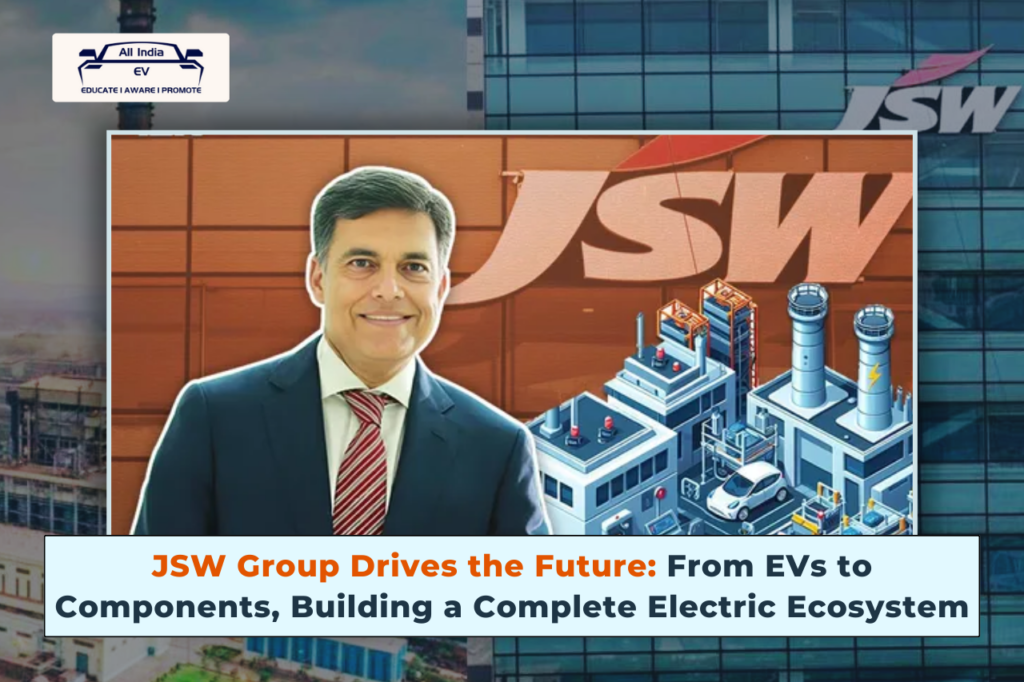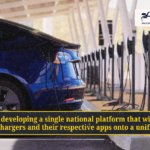
JSW MG Motor JV: JSW Group and SAIC Partner to Build Full-Stack Electric Vehicle Ecosystem
Sajjan Jindal’s JSW Group is quietly reshaping its automotive strategy, moving beyond electric vehicles (EVs) and batteries to create a fully integrated EV and hybrid component business. This expansion positions the $23-billion conglomerate as one of the few Indian companies developing an end-to-end automotive ecosystem — a model currently associated only with the Tata Group.
From charging to components
The new venture, JSW AutoComp, was carved out by renaming JSW NxGen Charge Ltd, originally established in August 2024 to build EV charging infrastructure. According to regulatory filings, shareholders approved the strategic shift in May this year, with the final conversion formalities completed in June.
The restructured entity will focus on supplying auto components for EVs and hybrids, complementing JSW’s existing investments in passenger and commercial EV manufacturing and its upcoming EV battery business. The move also taps into India’s $111-billion auto components market, which is growing rapidly on the back of rising EV adoption.
Industry experts say JSW is uniquely placed to extract synergies between its steel business (JSW Steel) and its new automotive ventures. “The group can leverage its position in the steel industry to secure raw materials and integrate vertically across the automotive supply chain,” said Puneet Gupta, director at S&P Global Mobility. “This will help support its own vehicle business as well as its joint venture with MG Motor.”
Strengthening its automotive play
JSW’s auto ambitions already span passenger cars, buses, and trucks through JSW Green Mobility and its subsidiaries JSW Motors (for passenger vehicles) and JSW Greentech (for commercial vehicles). The group also has a high-profile partnership with SAIC Motor of China under the JSW MG Motor joint venture, which is expected to launch locally manufactured models soon.
In July, JSW Green Mobility received a $115 million capital infusion from Jindal’s privately held firm JSW Projects. Meanwhile, JSW is working to bring in $300 million of fresh investment into MG Motor and will meet SAIC executives in September to finalize timelines. According to people familiar with the matter, the group is also engaging over a dozen investors to further strengthen its auto portfolio.
The component arm, JSW AutoComp, is held by Echelon Multiventures Pvt. Ltd, an investment vehicle backed by the Jindal family trust. It shares leadership with JSW Green Mobility: Sumit Mittal (commercial vehicles), Ranjan Kumar Nayak (passenger vehicles), and Bhushan Prasad have been appointed as directors.
A fully localized vision
Though the company has yet to make an official statement on its entry into components, Sajjan Jindal has been vocal about building a self-reliant, India-first automotive business.
“Our idea is not to be an outpost of a Chinese company to sell products in India,” Jindal told Financial Times earlier. “We want to manufacture in India, add value in India, and sell in India.”
This aligns with the group’s broader strategy to launch its first EV models — both passenger and commercial — in the next financial year, with four vehicle models currently under consideration.
Industry impact and market outlook
With MG Motor securing the No. 2 spot in India’s EV market — behind only Tata Motors — by selling nearly 12,000 units in Q1 FY25-26, JSW’s deeper involvement in the sector could reshape competition. By combining vehicle manufacturing, batteries, charging solutions, and now components, the group aims to reduce reliance on imports and control costs across the value chain.
Observers believe this “full-stack” approach gives JSW a strategic edge as India races to meet its EV adoption targets. By controlling key inputs such as steel and components, the group can maintain pricing flexibility, protect margins, and accelerate product development — critical advantages in a fast-evolving market where technology cycles are shortening.
As India pushes for localization of EV supply chains under government initiatives such as the Production Linked Incentive (PLI) scheme, JSW’s integrated model could become a blueprint for other domestic players.For now, the group remains tight-lipped. But the message is clear: JSW Group is not just building electric vehicles — it’s building the entire ecosystem to power them.










